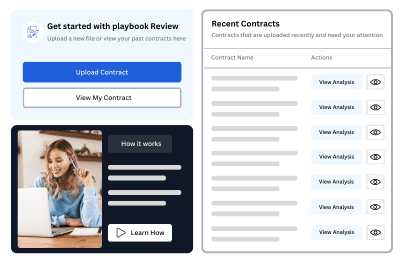Legalbook: Patient protection with LegalBook healthcare contract management

Key Challenges
The importance of large quantities of difficult contracts With each healthcare facility handling thousands’ contracts every year involving everything from vendors or suppliers’ contracts all the way to consent forms or patient insurance. This, of course, causes an overload of the administration, delays, and increased costs. According to the survey, 72 percent of the healthcare providers sign more than 2000 contracts each year which creates a lot ineffective.
It should be also ensuring compliance with all regulatory standards.
Contracts in the health sector have regulatory legal requirements such as HIHIPAA, GDPR, and the appropriate legal rulebook of the country. Alarmingly, 85 percent of healthcare providers receive critical attention because of regulatory infractions, with penalties and reputational loss.
Contract reviews accomplished manually also add 4-6 weeks to the lifecycle timelines, thus affecting the rate of onboarding of vendors and efficiency.
Contracts that are located in separate frameworks like shared drives or email chains lead to such adverse consequences as contract and information fragmentation, time for the search, and contract renewal delays. According to the research, 68% of providers continue to use ds distributed storage systems which are not efficient.
They are the one that results to the missing of the renewal deadlines or the compliance update by resulting to service disruption, penalty and operational lapsed. A total of 52.1% of the HC professionals share their experiences of facing disruptions as a result of missed deadlines.
Manual contract management leads to high operating costs as explained next. McKinsey has revealed constant data on casework jobs which when automated cut costs by a range of 30-40%, making the automation process vital.
Solutions By LegalBook:
Legalbook periodic reviews legal documents and highlights potential risks on health care contracts while producing default clauses for health care contracts. This cuts the review times by 60% which results in faster vendors on boarding and compliance.
Legalbook now takes 7-10 days to sign contracts with automated workflows and an approval centre, enhancing both procurement and timelines, and patient satisfaction.
Looking specifically at compliance monitoring with the help of artificial intelligence programmes. Legalbook reminds of HIPAA, GDPR and other regulations, showing risks and deviations, thus saving time on penalties and audits. Deloitte states that risks are cut by 70% when compliance is checked automatically.
The efficiency of organizing contracts often dictates the success of future contract management: the use of a centralized contract repository proves to be beneficial. Easy, secure access via a central database means versions of contracts do not have to be searched, providing an 85% boost, according to Gartner.
Legalbook comes with alarms for areas such as renewal and compliance checking and according to Forrester Legalbook has assisted in decreasing the failures…by 95%.
The clients can download specific contract templates that will be suitable to the type of business they have.
Leveraging the value of pre-vetted templates increases the efficiency of drafting and decreases discrepancies by half according to IACCM research.
Elimination of tasks that can be accomplished through automation helps to cut down a lot of money on the labor front and make the business a lot more profitable and scalable by as much as 30%.

Request A Demo
See it yourself how AI can
transform your
contract management.

Read Our
Stay updated with the latest trends, tips, and insights in business analytics. Explore our curated
articles designed to empower your data-driven journey..







